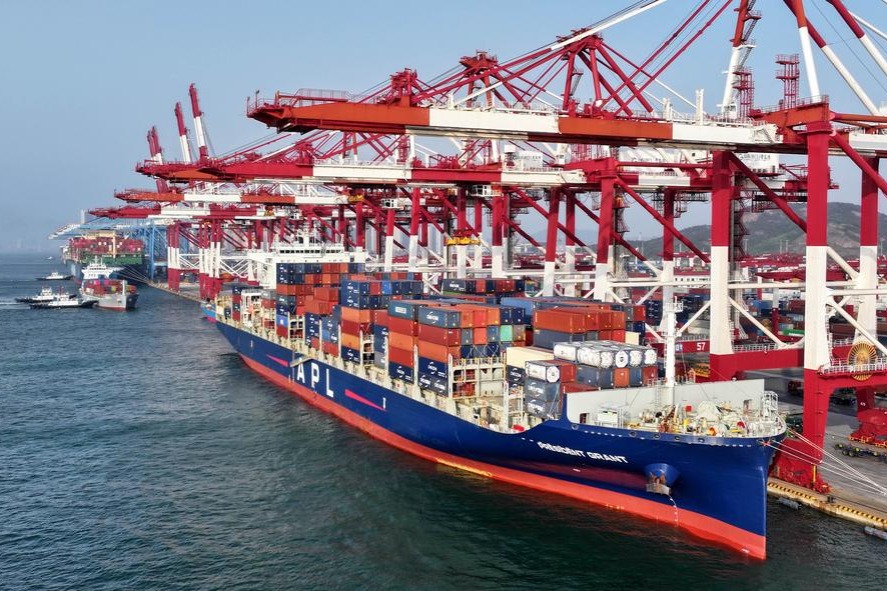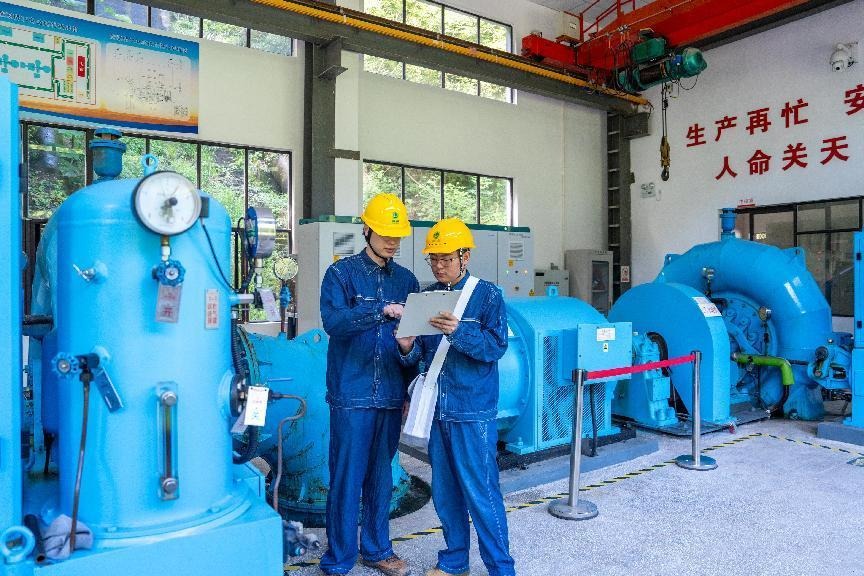China and US should avoid a 'new Cold War'

By baselessly accusing China of spreading the novel coronavirus, the United States has stepped up pressure on China. As a result, Sino-US tensions have reached feverish pitch, raising fears of "decoupling" of the world's two largest economies and the emergence of a "new Cold War".
In particular, on May 14, US President Donald Trump said during an interview that "you'd save $500 billion if you cut off the whole relationship", and a US Defense Department report, "US Strategic Approach to the People's Republic of China" issued to congressmen on May 20, alleged that China poses numerous challenges to US national interests and "the Administration has adopted a competitive approach to the PRC".
The US' aggressive moves suggest Sino-US ties are unlikely to improve; instead, they could worsen. That the US administration has been caught flatfooted by the novel coronavirus pandemic explains why the White House is trying to blame Beijing for its failure to contain the virus in the country.
Essentially, the US is prejudiced against China because it sees a rapidly developing China as a rival. And since opposing China appears to be an unwritten bipartisan policy in the US, the US leadership, no matter who is and will be the president, is unlikely to change its China policy.
The US' anti-China policy includes offering tax subsidies and other incentives to draw US companies away from China, pressuring US investors to stop investing in the Chinese stock market, and limiting the number of Chinese students and journalists in the US.
Yet it is too early to say whether the Sino-US tensions would lead to the decoupling of the two economies or trigger a "new Cold War", because economies across the world are closely interconnected due to globalization. In fact, they should avoid a 'new Cold War'. The international division of labor has benefited all countries and made them interdependent. So a country can develop further only by resorting to multilateralism, not unilateralism.
Many US enterprises have made huge profits due to the international division of labor, which means they will suffer huge losses if the world's two largest economies are decoupled. No wonder a survey jointly conducted by the American Chambers of Commerce in China and PricewaterhouseCoopers showed the majority of US companies in China have no plans to relocate either to the US or any other country, and most of them expect China's supply chain to return to normal in three to six months.
An article on US news website The Hill, headlined "Trump picks the worst possible moment to attack China", said "a new round of tariffs, or cutting off Chinese investment or students, would hit the U.S. economy at one of its most vulnerable moments ever".
Besides, the US will not find it easy to persuade or coerce its allies to join it to "take on" China, as the European Union, Japan, Australia and other US allies have serious concerns over their national interests and on many issues-such as regional development, global issues and economic cooperation-they agree with China.
The US has also been putting pressure on its allies to reject Chinese telecommunications company Huawei's 5G technology and other products and services to supposedly safeguard their national security but has not received any concrete response from most of them.
On decoupling, Robin Niblett, director and chief executive of Chatham House, a think tank based in US ally Britain, said on April 17 that, "consciously uncoupling the US economically from China will make the post-coronavirus recovery that much harder" and "if COVID-19 creates a long-term schism between China and the US, with Europeans caught on its edge, this could do deep damage to world order".
For foreign companies, China's huge market and effective supply chain remain attractive. All five Japanese companies, cited in a South China Morning Post report on May 13, said they would continue manufacturing in China despite the Japanese government offering subsidies to relocate from China.
They also said China was an important market and that it would be very expensive and unnecessarily disruptive to relocate their operations elsewhere. Severing ties with China means taking unnecessary risks and rising costs for foreign enterprises. So Sino-US relations will continue but with more confrontations.
The author is a research fellow at the Charhar Institute and a member of the Chinese Institute of Command and Control. The views don't necessarily represent those of China Daily.
Today's Top News
- Chinese, Russian navies to hold joint exercise, patrol
- Childcare subsidy applications to start in late August
- CPC leadership holds symposium to seek advice on economic work
- 20th CPC Central Committee to hold fourth plenary session in October
- Stable, healthy Sino-US business ties beneficial to all
- Fifth volume of 'Xi Jinping: The Governance of China' published






























